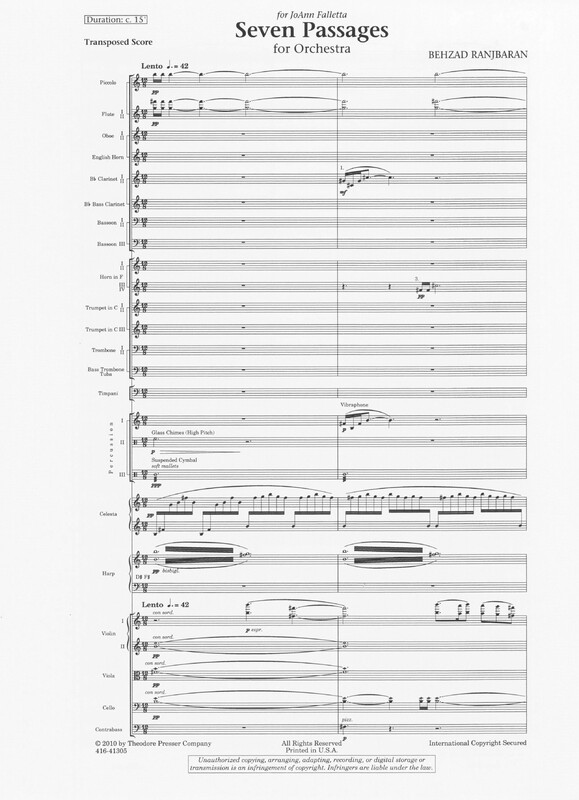Seven Passages
Item
-
Score title
-
Seven Passages
-
Composer
-
Behzad Ranjbaran
-
Program note
-
Seven Passages, the final work composed in my Persian Trilogy, draws its inspiration from an episode in the Shahnameh (Book of Kings) titled “The Seven Trials of Rostam.” All three orchestral works in the Persian Trilogy were inspired by the stories of the Shahnameh, the national epic poem of Persia/Iran. The Shahnameh was written by the poet Ferdowsi (c. 940-1020), recounting the mythological and legendary history of the country from the creation of the world up to Persia’s conquest by the Arab conquerors, who brought with them the new religion of Islam in the 7th Century. The main hero of the poem is Rostam, who spends much of his life fighting on behalf of the Persian kings, often saving them from situations in which their own pride and foolishness have entangled them.
In writing Seven Passages, I was inspired by the symbolism evident in the story which depicts a heroic struggle with all of its pain, tragedy, self doubt, joy, and ultimate victory. Throughout these trials, Rostam emerges triumphant from his encounters with wild beasts, witches, demons, and dragons while performing one act of heroism after another. However, I have come to realize that in real life, courageous acts are not limited only to heroes. Unsung heroes perform countless acts of courage and struggle daily.
Seven Passages was composed during 1999-2000 on a commission from the Long Beach Symphony, with additional support from the National Endowment for the Arts. It was premiered by the Long Beach Symphony in March 25, 2000, JoAnn Falletta, conductor. The London Symphony Orchestra recorded Seven Passages on a CD titled Persian Trilogy, conducted by JoAnn Falletta.
 Behzad Ranjbaran
Behzad Ranjbaran

